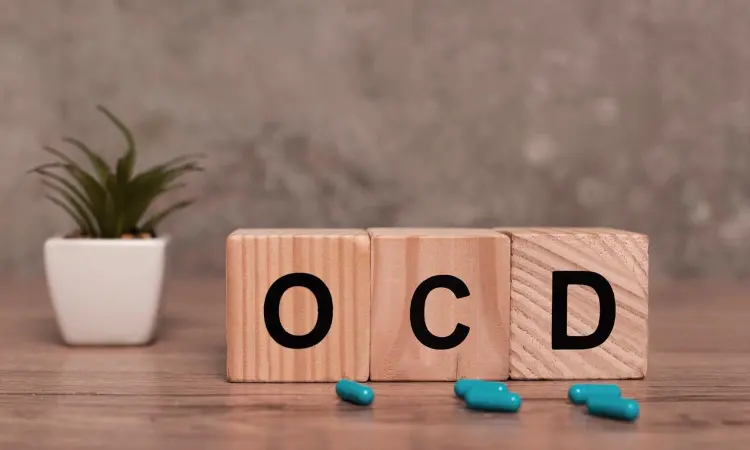- Home
- Medical news & Guidelines
- Anesthesiology
- Cardiology and CTVS
- Critical Care
- Dentistry
- Dermatology
- Diabetes and Endocrinology
- ENT
- Gastroenterology
- Medicine
- Nephrology
- Neurology
- Obstretics-Gynaecology
- Oncology
- Ophthalmology
- Orthopaedics
- Pediatrics-Neonatology
- Psychiatry
- Pulmonology
- Radiology
- Surgery
- Urology
- Laboratory Medicine
- Diet
- Nursing
- Paramedical
- Physiotherapy
- Health news
- Fact Check
- Bone Health Fact Check
- Brain Health Fact Check
- Cancer Related Fact Check
- Child Care Fact Check
- Dental and oral health fact check
- Diabetes and metabolic health fact check
- Diet and Nutrition Fact Check
- Eye and ENT Care Fact Check
- Fitness fact check
- Gut health fact check
- Heart health fact check
- Kidney health fact check
- Medical education fact check
- Men's health fact check
- Respiratory fact check
- Skin and hair care fact check
- Vaccine and Immunization fact check
- Women's health fact check
- AYUSH
- State News
- Andaman and Nicobar Islands
- Andhra Pradesh
- Arunachal Pradesh
- Assam
- Bihar
- Chandigarh
- Chattisgarh
- Dadra and Nagar Haveli
- Daman and Diu
- Delhi
- Goa
- Gujarat
- Haryana
- Himachal Pradesh
- Jammu & Kashmir
- Jharkhand
- Karnataka
- Kerala
- Ladakh
- Lakshadweep
- Madhya Pradesh
- Maharashtra
- Manipur
- Meghalaya
- Mizoram
- Nagaland
- Odisha
- Puducherry
- Punjab
- Rajasthan
- Sikkim
- Tamil Nadu
- Telangana
- Tripura
- Uttar Pradesh
- Uttrakhand
- West Bengal
- Medical Education
- Industry
Glutamatergic medications effective in treating obsessive-compulsive disorder: JAMA

A new study published in the Journal of American Medical Association found that obsessive-compulsive disorder (OCD) and other obsessive-compulsive and related disorders (OCRDs) may benefit from the use of glutamatergic drugs.
Numerous neuropsychiatric problems that significantly disrupt everyday functioning are included in OCD and associated disorders. These disorders, which cause a great deal of anxiety and interfere with day-to-day functioning, include trichotillomania (hair pulling), body dysmorphic disorder (BDD), skin-picking disorder (excoriation disorder), OCD, and hoarding disorder.
Approximately 60% of patients may not react satisfactorily to current therapies, despite their frequent effectiveness by highlighting the need for innovative therapeutic techniques. With an emphasis on randomized clinical trials (RCTs), David Coelho and colleagues carried out this study to assess the amelioration of OCRD symptoms linked to glutamatergic drugs as monotherapy or as an addition to selective serotonin reuptake inhibitors.
On October 16, 2024, electronic searches were performed without date constraints in Web of Science, PubMed, PsycINFO, Embase, and the Cochrane Central Register of Controlled Trials. Double-blind RCTs comparing glutamatergic medicines with placebo for patients with OCRDs, regardless of age, gender, sex, or refractoriness were extracted. Excluded were abstracts, research procedures, studies conducted in languages other than English, and trials that included psychotherapy augmentation. Random-effects meta-analyses were used to extract and synthesize the data.
Subgroup analysis was carried out according to the population, augmentation approach, risk of bias, refractoriness of OCRD, type of glutamatergic drug, and OCRD type. To do sensitivity analysis, a leave-one-out method was used. The standardized mean difference was used to gauge the improvement in OCRD symptoms (Cohen d). The mean difference (a decrease in Yale-Brown Obsessive-Compulsive Scale [Y-BOCS] scores) was used to gauge the improvement in obsessive-compulsive disorder (OCD) symptoms.
There were a total of 27 RCTs, with 1369 participants (mean [SD] age, 31.5 [7.8] years; 65.6% female). Drugs that are glutamatergic showed a significant improvement in OCRD symptoms. Glutamatergic drugs showed a substantial mean decrease in Y-BOCS scores in the 23 OCD-specific RCTs. Overall, glutamatergic drugs may be useful in treating OCRDs, including OCD, according to this comprehensive review and meta-analysis. However, careful interpretation is required due to considerable variability and possible publication bias.
Reference:
Coelho, D. R. A., Yang, C., Suriaga, A., Manasa, J., Bain, P. A., Vieira, W. F., Papatheodorou, S., & Salvi, J. D. (2025). Glutamatergic Medications for Obsessive-Compulsive and Related Disorders. In JAMA Network Open (Vol. 8, Issue 1, p. e2452963). American Medical Association (AMA). https://doi.org/10.1001/jamanetworkopen.2024.52963
Neuroscience Masters graduate
Jacinthlyn Sylvia, a Neuroscience Master's graduate from Chennai has worked extensively in deciphering the neurobiology of cognition and motor control in aging. She also has spread-out exposure to Neurosurgery from her Bachelor’s. She is currently involved in active Neuro-Oncology research. She is an upcoming neuroscientist with a fiery passion for writing. Her news cover at Medical Dialogues feature recent discoveries and updates from the healthcare and biomedical research fields. She can be reached at editorial@medicaldialogues.in
Dr Kamal Kant Kohli-MBBS, DTCD- a chest specialist with more than 30 years of practice and a flair for writing clinical articles, Dr Kamal Kant Kohli joined Medical Dialogues as a Chief Editor of Medical News. Besides writing articles, as an editor, he proofreads and verifies all the medical content published on Medical Dialogues including those coming from journals, studies,medical conferences,guidelines etc. Email: drkohli@medicaldialogues.in. Contact no. 011-43720751


